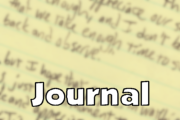What to do with Columbus Day…
3 minute read
October 29, 2019, 10:25 AM
As the Columbus Day holiday rolled around again this year, we got the usual rounds of people who called the day “Indigenous People’s Day” and denounced Christopher Columbus. This year, the District of Columbia passed short-term legislation declaring the day by the newer name. My feelings on the matter have a surprising amount of nuance to them. But first, let’s make no mistake about it: Christopher Columbus was no saint. From what I’ve read, he enslaved a lot of native people, and killed a whole lot of them as well, both through violence and disease. For those not familiar, the form that this recognition typically takes is that people and organizations eschew the use of the term “Columbus Day”, referring to it as “Indigenous People’s Day” instead.
However, I take issue with the form that this recognition of Columbus’ being less than worthy of the honor of a holiday typically takes. The reason that I don’t like this way of doing things is because it takes the holiday away from one entity and gives it to another entity, treating it as a single either/or issue, rather than treating the declaration of a holiday in honor of an individual or entity as one issue, and treating the removal of a different holiday as its own issue. I also feel that it cheapens the new entity being honored because it makes it seem as though they are a substitute honoree, rather than something worth honoring in their own right. The direct swap also feels too much like overt political correctness, which grates on me. That said, I have no problem with the idea of having an “Indigenous People’s Day” holiday, but doing it as a title swap on the Columbus Day date goes about it all wrong.
I defended my ideas on a recent post on WHSV-TV’s Facebook page (the ABC affiliate from Harrisonburg), on a post running an article about Richmond’s recognizing the holiday under the new name. The comments on WHSV’s Facebook page are typically garbage from very ignorant people, but you do get the occasional intelligent thread in the sea of garbage responses, and this was that latter case.
Categories: Holidays, National politics
Formality, not respect…
4 minute read
October 20, 2019, 9:34 AM
Something has always grated on me when people would say that the use of terms like “Mr.”, “Mrs.”, “Sir”, “Ma’am”, and so on allegedly indicated respect. It also bothered me that, at least in school, the alleged respect only ran one way. The students were required to address the staff by title and last name, while the teachers generally addressed the students by first name only. It only made sense to me that if using last names meant respect, that it would reciprocate, but it never did. You knew that something was fishy about that, because anyone who’s ever seen a teacher get told off by a student knows that the student will typically use the formal nomenclature for the teacher, but still be rather uncouth. The student won’t say, “The hell with you, Maureen,” but more likely will say, “The hell with you, Ms. Kelly.” The teacher in question might still hustle the student out of the room and fling their stuff out into the hallway so hard that their stuff hits a locker before falling to the floor, but they were respectful, because they addressed the teacher by their title and last name, right? Right? I see you rolling your eyes, because the argument clearly doesn’t hold water. The hypothetical kid in the example was clearly being disrespectful, and what name they actually called the teacher, be it formal or informal, was irrelevant.
Then in 2014, when I began work at my current company, it all became clear during orientation. Use of last names wasn’t about respect at all, but rather, it was about formality. Formality made a whole lot more sense than respect for that type of address. And unlike in school, everyone was on a last name basis with everyone, as in regardless of rank or title, you are on a last name basis with your colleagues. The general rule was title and last name. Operator Schumin. Supervisor Walker. Instructor Jacobs. Superintendent Walkup. And so on. I can respect that, with everyone on a last name basis. We may have different titles and ranks, but everyone is on a last name basis. It’s not a matter of “I’m up here, and you’re down there, and I will address you accordingly,” that you get in school. If schools want to do formal address properly, everyone should be on a last name basis, students and teachers alike. In other words, if the teacher is “Mr. Matherly”, the student should be “Mr. Schumin”. Or if one is going to use position titles, “Teacher Matherly” and “Student Schumin”.
Categories: Language
Changes in the area of photo licensing…
3 minute read
October 1, 2019, 12:00 AM
I have a few changes to announce in the area of photo licensing. First and foremost, Schumin Web Photo Licensing, my in-house photo licensing site, is no more. I had been running that site for about three years, and while it did a respectable amount of business, I felt that it didn’t justify the amount of resources that it consumed, and it also didn’t justify the amount of time spent to maintain it. There was also always a bit of an uncomfortable interaction with Pixsy. The idea was that there was a very real possibility that someone could use my licensing site in an attempt to circumvent a Pixsy case for an unauthorized use of an image, and that could be a sticky situation to get straightened out. Yes, I had policies stating that use of the licensing site to circumvent Pixsy was not permitted, and that any licenses purchased in an attempt to circumvent Pixsy’s process would be cancelled, but good luck trying to prove that. All it really did was make the site look prickly to potential users by having to put that in the fine print, even though its inclusion was necessary. So in the end, the site is gone.
Otherwise, my philosophy for photo licensing is changing based on experience. Licensing on the front end didn’t do as well as I might have hoped, but pursuing Creative Commons violations has been quite lucrative over the last few years. I like to say that Pixsy furnished the house when I moved to Montgomery Village back in 2017. Thus my stance on licensing has evolved from a traditional licensing model towards just letting people use the material under a free license that requires attribution, i.e. Creative Commons, and then aggressively policing compliance through Pixsy and DMCA takedown notices. In other words, follow the rules, and it’s free. Don’t follow the rules, and it’s going to cost you.
The Content Licensing page has also been revised to jive with this new stance on licensing. It now again explicitly states that anything published prior to February 20, 2014 is available under the Creative Commons Attribution-ShareAlike 3.0 United States license. This was always the case due to the way that Creative Commons works in practice, but after February 2014, it was not stated explicitly. Additionally, it directs users to my Flickr page to find Creative Commons content posted after February 20, 2014. Explicitly listing every Creative Commons image on Schumin Web would require going through more than five years’ worth of material to mark stuff, and I can think of a hundred other things that I would rather do besides that. So Flickr it is, especially since that site has very powerful Creative Commons search tools.
Categories: Schumin Web meta










 Continue reading…
Continue reading…